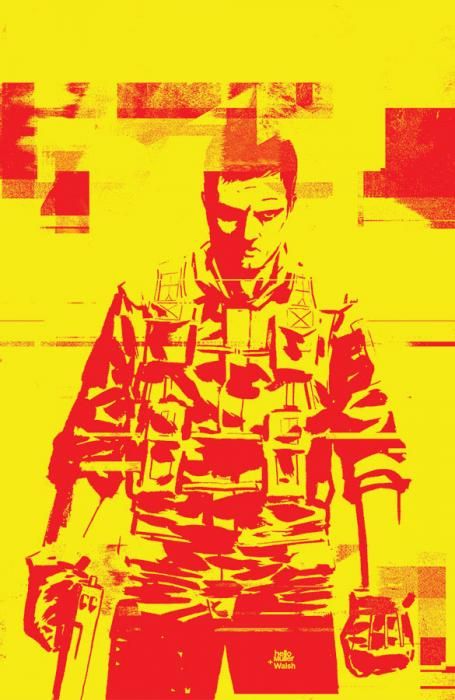"Zero" #1 is the first creator-owned ongoing from critically-acclaimed wunderkind Ales Kot who, with his debut releases "Wild Children" and "Change," delivered stories as confident as they were abstruse. Both infused powerful high concepts with a surrealist air, willfully defying attempts at direct interpretation and giving readers a lot of ambiguity to play with. Perhaps even a little too much. They were striking, no doubt, but one was left with the impression that Kot, despite a demonstrably strong voice, might not have the chops to pull off an actual story in the traditional sense.
With "Zero" Kot hasn't quite abandoned his penchant for narrative amorphism -- each issue is written for a different artist -- but this time he's got the story nailed down cold. The series is a futuristic espionage thriller steeped in real-world politics and starring next-generation spy Edward Zero. This first issue shows us what kind of man Zero is and how far he's willing to go to accomplish his mission. Which is to say, very far.
Indeed, "Zero" #1's violence is brutal, but not in a cinematic sense. It's almost candid about the horrors it depicts, with Michael Walsh's thick panels and spare lines focusing readers on the grim reality of what unfolds. It's undeniably tense stuff. Kot and Walsh control the pace masterfully, inching out the horror so you feel its effects in every panel. Zero completes his mission, but by the end of the issue you're not sure whether it's worth the cost.
As with Kot's previous work, there's sex and death in "Zero" with neither afforded any more glamour than the other. A brief interlude where two Agency bureaucrats seemingly directing Zero's mission from behind the scenes get coital with one another is depicted with the same frankness as the murders just pages away. Clearly, there's more going on between those characters than we're able to discern right now, but it's the tone that's the most interesting thing here. It's not a book that's trying to shock, it's just trying not to be coy. As a reader, you can respect that.
It's clear, then, that Kot can indeed write more traditionally-structured stories with his own creations than he'd previously shown an interest in. If anything, the world of "Zero" is almost too deliberately defined, heading into Ellis-esque geopolitical spec-fic at times. And while a stronger narrative hook would've made a second issue a less uncertain prospect, there's a framing sequence which starts with a powerful image and poses a lot of questions that demand resolution. You're more likely to return for the creators than the characters, but a launch with this much poise suggests "Zero" is going to be worth keeping an eye on.

